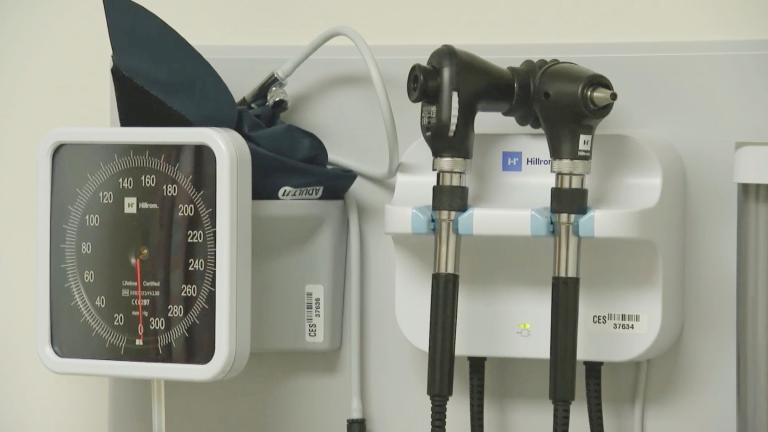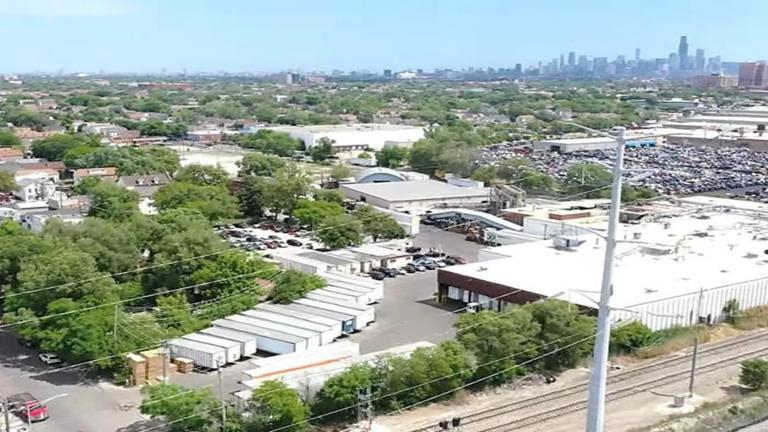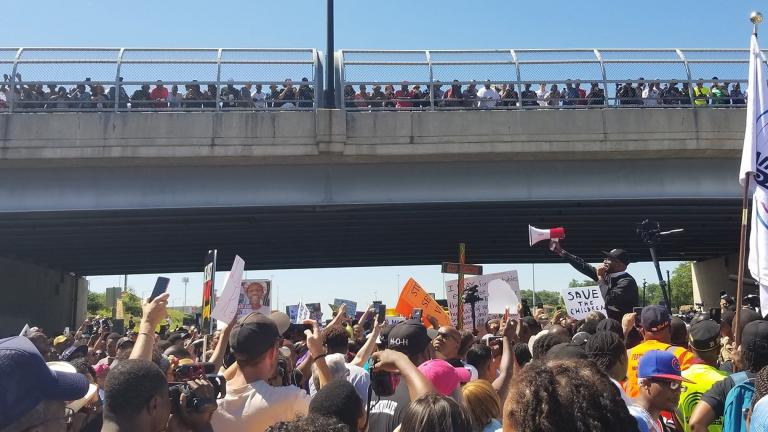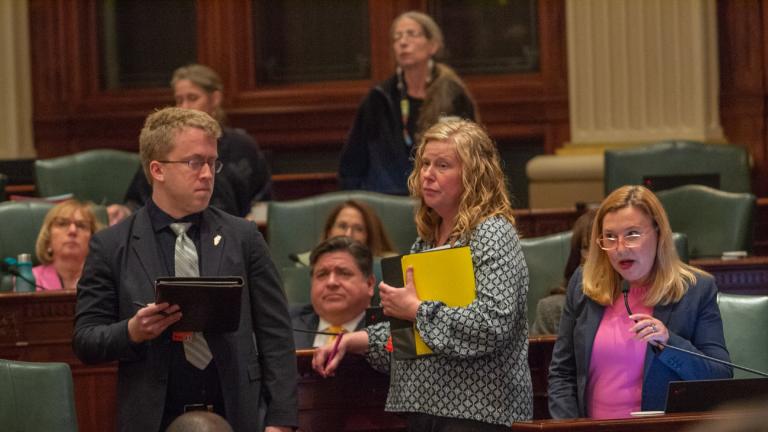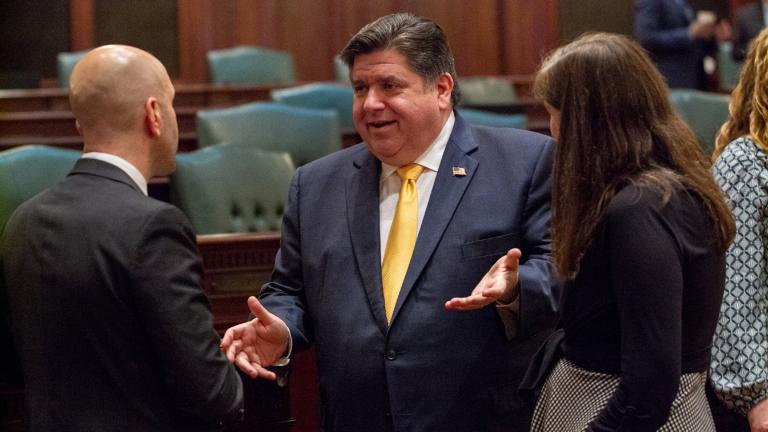Illinois will soon enter a fresh period of Democratic control of state government when Republican Gov. Bruce Rauner on Monday passes the gubernatorial gavel to Democrat J.B. Pritzker. But two powerful mainstays will remain: House Speaker Michael Madigan and Senate President John Cullerton.
Each won new leadership terms Wednesday, as members of the 101st General Assembly took the oath of office.
The transition marks the end of a partisan standoff led by Rauner and Madigan on opposite fronts that saw Illinois suffer through an unprecedented budget impasse.
Madigan used his inaugural speech to put the onus on Rauner.
“Four long year of character assassination, personal vilification and strident negotiation positions which hurt our state government and led to inaction for the people of Illinois,” Madigan said of Rauner’s tenure. “But, let me suggest we move beyond these last four years and not just close the book. Rather, let’s close one chapter and take lessons, so we can move on to a new chapter where people work with people.
(During a press conference Tuesday, Rauner lashed out at Madigan, albeit indirectly. In a tirade about Chicago Ald. Ed Burke, who is fighting a federal charge of attempted extortion for trying to illegally steer a business in his ward to his property tax law firm, Rauner said “there are others that do the same and worse. They haven’t been indicted yet. I hope they are.” Like Burke, Madigan is a partner at a property tax appeals law firm).
Read: In Final Days as Governor, Rauner Opens Up on Trump, Taxes, Unions and Burke
Madigan won an unprecedented 18th term as speaker easily; he’ll marshal his largest-ever supermajority of Democrats, who outnumber Republicans in the House by 67-50.
But the refusal of support from one those Democrats -- freshman Rep. Anne Stava-Murray of Naperville, who took the rare step of casting a “present” vote – is a sign of the challenges Madigan could face, even with his political nemesis out of the governor’s office.
Stava-Murray campaigned on an anti-Madigan pledge, and has been critical of how Madigan has handled allegations of sexual harassment.
Read: New Democratic Legislator Pushes Against the Machine
Cullerton – who in a show of bipartisanship cast his vote for Senate president for Republican Leader Bill Brady (Brady likewise cast his vote for Cullerton) – begins the new term with an even stronger supermajority: There are 40 Democratic Senators; more than double the Republicans’ 19.
Rauner stood at the dais throughout the Senate ceremony; per the constitution, that will be one of his final official duties as governor.
In his speech, Cullerton also grieved the budget impasse for having “threatened the very fabric of our state,” but he took a more placatory tone toward Rauner, saying, “We may have had our differences, from time to time, but you took on a challenge when others merely complain from the sidelines. Thank you, and I wish you and your family the best.”
The effects of the impasse will continue to plague not just Illinois, but the incoming governor and new class of legislators faced with confronting mounting pension debt, a budget deficit and an ongoing backlog of unpaid bills.
After their election shellacking, Republican leaders spoke about cooperating in an effort to tackle those and other issues.
Newly re-elected House Republican Leader Jim Durkin said that “all of our constituents throughout the state deserve better then we have given them in recent memory. They are losing faith in Illinois, our government and our future here.”
He called for the new General Assembly to “put politics aside and work together in an effort to revive our struggling state” and to avoid the practices of previous bodies that consistently took “the politically expedient approach to problem-solving time and time again. That’s with delay, arguments and obfuscation always ending with avoidance of the real issues.”
Tops on the agenda for Cullerton: reviving Illinois’ infrastructure and transportation network.
“Through all the troubles this state has faced, we’ve always fallen back on two strengths: An outstanding workforce and a world-class transportation network. But in 2019, both need our help,” he said during his address.
But funding a capital program will require a new revenue source, and already critics are seizing on a proposal backed by retiring Chicago Mayor Rahm Emanuel to raise the state tax on gasoline.
Emanuel, who was an infrequent visitor to Springfield during his nearly eight years as mayor (he said Wednesday he went to the capitol three or four times during his tenure) attended the Senate event, because, he said, “John’s (Cullerton) a good friend.”
While it could be months before the legislature tackles something as complex as a major infrastructure program, Emanuel predicted that Pritzker will quickly sign into law a statewide gun dealer licensing program that Chicago has been agitating for.
“One of the first bills that the governor-elect will be signing is the gun dealer licensing bill modeled on Chicago. Gov. Rauner vetoed that, stopped it multiple times. It’s going to be one of the first bills that Gov. Pritzker signs. That’s exactly the partnership we’re looking for and exactly the right type of focus,” the mayor said.
Emanuel, once a friend of Rauner’s, also heaped criticism on the outgoing governor, telling reporters that he and Rauner have fundamental differences and approaches to government.
“He was actually trying to undermine the economic engine of the state,” Emanuel said. “And I stood up for the city of Chicago.”
Follow Amanda Vinicky on Twitter: @AmandaVinicky
Related stories:
In Final Days as Governor, Rauner Opens Up on Trump, Taxes, Unions and Burke
Longtime Lawmaker Lou Lang Resigns House Seat
Chicago Organizer Picked to Finish Raoul’s State Senate Term
New Democratic Legislator Pushes Against the Machine

